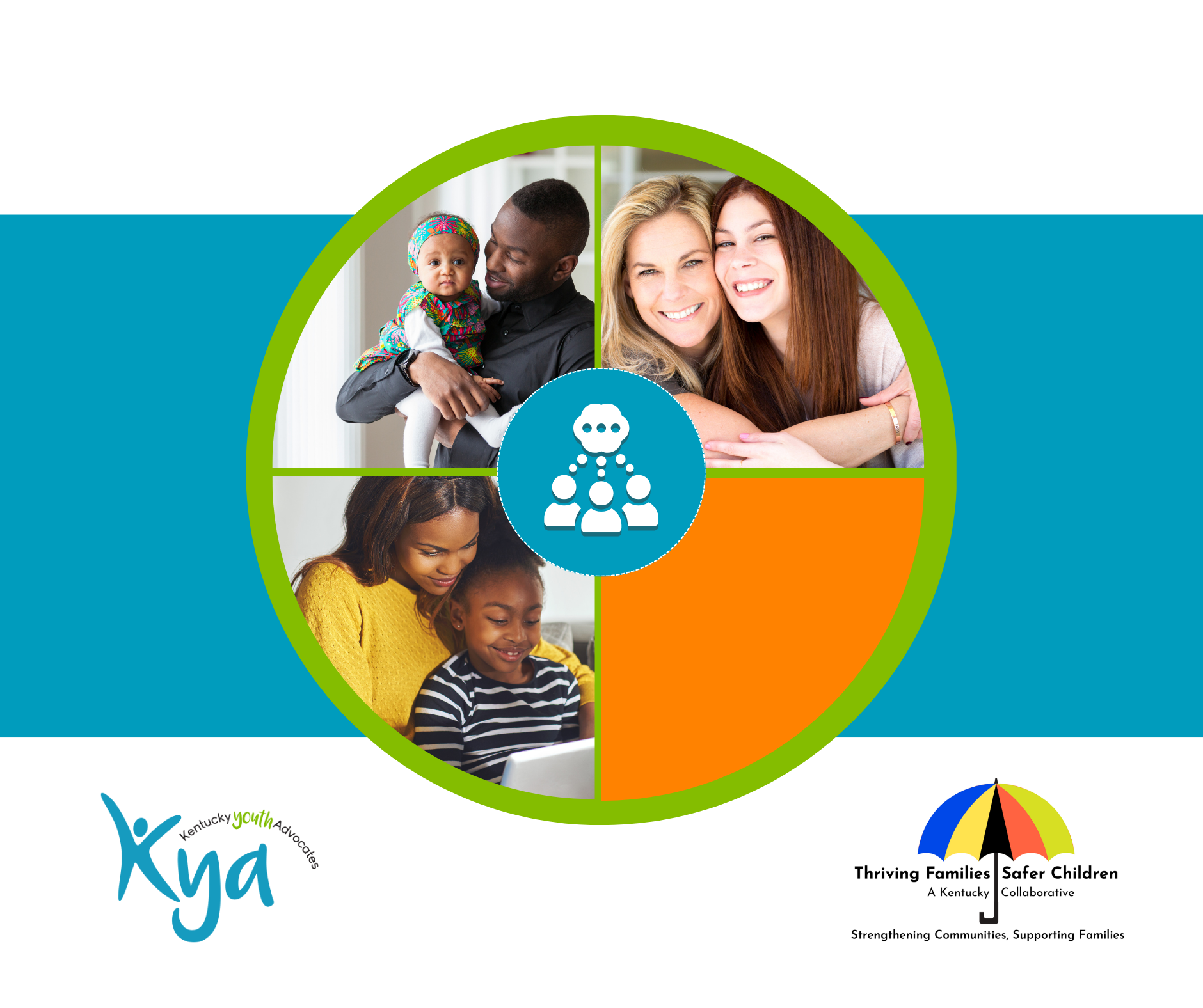This post originally appeared as an op-ed in the Courier Journal September 3, 2020.
 By Terry Brooks, executive director Kentucky Youth Advocates
By Terry Brooks, executive director Kentucky Youth Advocates
To say that autumn 2020 may bring surprises is the classic understatement. Can you imagine a year ago – or even a few months ago – seeing a September when kids are in front of a screen at home instead of in a classroom at school? Or an October when talk about college football playoffs isn’t beginning to percolate? Or a Halloween when … well, you get the point.
Talk about surprises! Even a couple weeks ago, I could not imagine autumn of this year without kids and families being supported by Congress and yet, unless the U.S. Senate and U.S. House get down to serious business in the immediate, the secondary impacts of COVID-19 are going to devastate – and that verb is not hyperbolic – Kentucky’s children. Whether it’s child care or K-12 education, a stable place to live or food to eat, real economic supports or broader health care needs, kids are being forgotten as this next round of a Congressional response to the pandemic rolls ahead.
That indefensible omission is even more dumbfounding when you consider the stellar kid track record of our federal delegation. These are the leaders who crafted game changing approaches to both child welfare and juvenile justice just a couple sessions ago. And these are the same leaders who stepped up – and stepped up in significant ways – as part of the early response to the pandemic ensuring that children’s basic needs, like food, housing, and child care, were met and the economy could stabilize.
Yet, it’s as if Congress has caught amnesia instead of COVID-19 when it comes to supporting kids now.
There is a myriad of needs that are very real, very pressing and represent very common-sense legislative solutions. Because of space limitations, I shall limit the focus on just two, but be assured that these are illustrative rather than comprehensive examples of what kids need from our elected officials in D.C.
You can’t begin to talk about re-opening the economy or about the general well-being of children without addressing the child care emergency we are facing.
With many schools delaying in-person instruction, child care is the only support for working parents. Yet, we know that access to safe, quality care is nothing short of a crisis for many parents, with a disparate impact on women, single parents, people of color, and parents whose jobs require their physical presence outside of the home. Even pre-pandemic, Kentucky was facing a shortage of child care options, and this has been exacerbated as many licensed centers have made the difficult decision to close permanently.
The bottom line: the results of delayed federal investment are children without quality care, parents without safe options, and businesses without productive employees. Congress must act now to invest a total of $50 billion in federal child care funding, which would bring approximately $958 million in funding to Kentucky, in order to sustain the child care sector from Ashland to Paducah, and coast to coast.
 Just as child care is a fundamental need, assistance with buying groceries remains a critical support for families to survive and thrive through the course of the pandemic.
Just as child care is a fundamental need, assistance with buying groceries remains a critical support for families to survive and thrive through the course of the pandemic.
In the spring, the federal government smartly allocated funds for meals and expanded several food assistance waivers to ensure children’s access to adequate nutrition. Those have since expired and require immediate action and investment to quell any worries for families about accessing meals in the months to come.
Many children rely on at least one meal a day while in the school building and, during the spring shutdown, over 500,000 Kentucky students shifted that reliance to the Pandemic-EBT benefit so they could buy groceries. As negotiations continue, Congress must ensure kids’ access to adequate nutrition by extending the P-EBT benefit for students through the new school year and authorizing budget relief for school nutrition programs. Eligible families have until the end of August to claim the limited P-EBT benefit and need this extension to put food on the table as many students continue to stay home for virtual learning.
I am, by nature, an optimist. I hope that the current rhetoric out of D.C. is just political theater from both parties and perhaps an opening foray in the game of Congressional COVID-19 poker. And I hope that the Senate and the House will keep fidelity to their earlier efforts which prioritized children and families, for the sake of kids to be sure, but also – if we’re honest – as a catalyst to the economy.
If my hopes ring true, then Kentucky’s kids and families can do more than just make it this autumn; they can begin to thrive once again. But, if my hopes are misplaced and if Congress actually does nothing for kids, then a different kind of future is about to unfold for the commonwealth’s boys and girls.






Leave A Comment